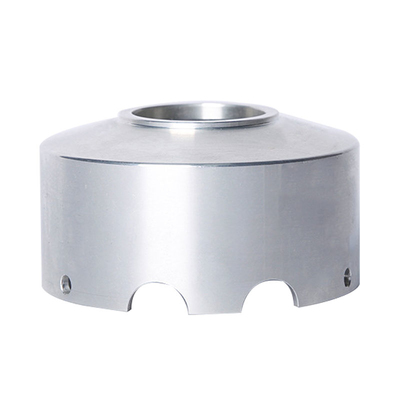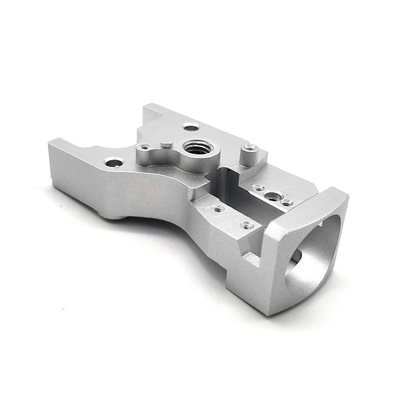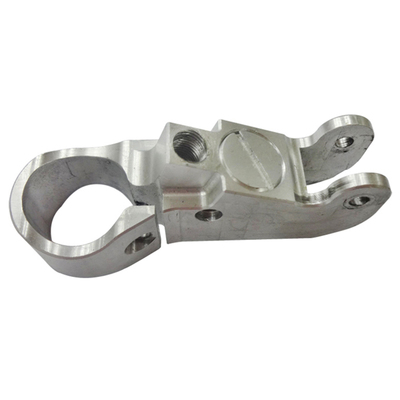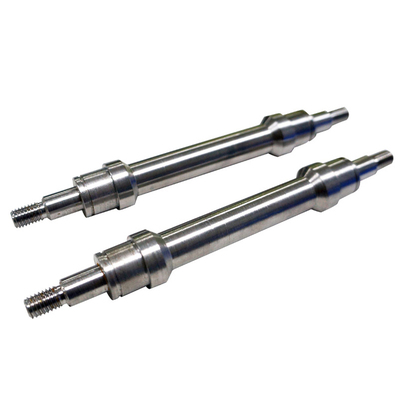Improvement of pretreatment process for aluminum and aluminum alloy electroplating
I. Introduction
Electroplating of various metals on the surface of aluminum and aluminum alloys can significantly improve the physical or chemical properties of the surface. When aluminum and aluminum alloys are used as conductors, electroplating silver on the surface can increase the electrical conductivity of the surface or electrical contact parts; Easy to solder, copper, nickel or tin is electroplated on the surface; in order to improve its wear resistance, thick copper is electroplated on the surface. In terms of decoration, most of them are actually electroplating.
Electroplating on the surface of aluminum and aluminum alloys has been tried a long time ago and has been used in actual production. However, there are oxides between aluminum and aluminum alloy and the coating. The thermal expansion coefficients of aluminum and aluminum alloy and the metal coating are different. The coating has pinholes and residual electroplating solution. After peeling off immediately, in the field of surface treatment, the electroplating process of aluminum and aluminum alloy is still in the exploratory stage. There has been no substantial breakthrough for a long time, and no perfect and mature process has been formed. The poor adhesion of the coating is the bottleneck of the electroplating quality and product qualification rate of aluminum and aluminum alloys.
2. Traditional aluminum and aluminum alloy electroplating
Aluminum and aluminum alloys can form a plating layer by electrolysis in the electrolyte, but the plating layer has a weak bonding force and is easy to peel off. Therefore, aluminum can be deposited in an aqueous solution containing zinc oxide compounds and then electroplated. This method is either a zinc replacement method or a deposition method. It is also possible to first treat the surface of aluminum and aluminum alloys to obtain a thin porous oxide film through anodizing power source, and then perform electroplating.
2.1 Process flow of conventional aluminum and aluminum alloy electroplating
The aluminum and aluminum alloy electroplating process consists of three parts: pre-plating treatment, electroplating, and post-plating treatment. Pre-plating treatment is a more critical process related to the quality of electroplating products. Its main purpose is to remove grease on the surface of aluminum and aluminum alloys, and naturally form oxide films and other dirt.
The conventional general process flow is: degreasing-washing-corrosion reduction-washing-pickling-washing-activation-washing-primary dipping-washing-dezincing-washing-secondary dipping-washing-neutral nickel plating-washing- Subsequent electroplating. There is also the use of wave anodized film to replace the zinc dipping process after subsequent electroplating.
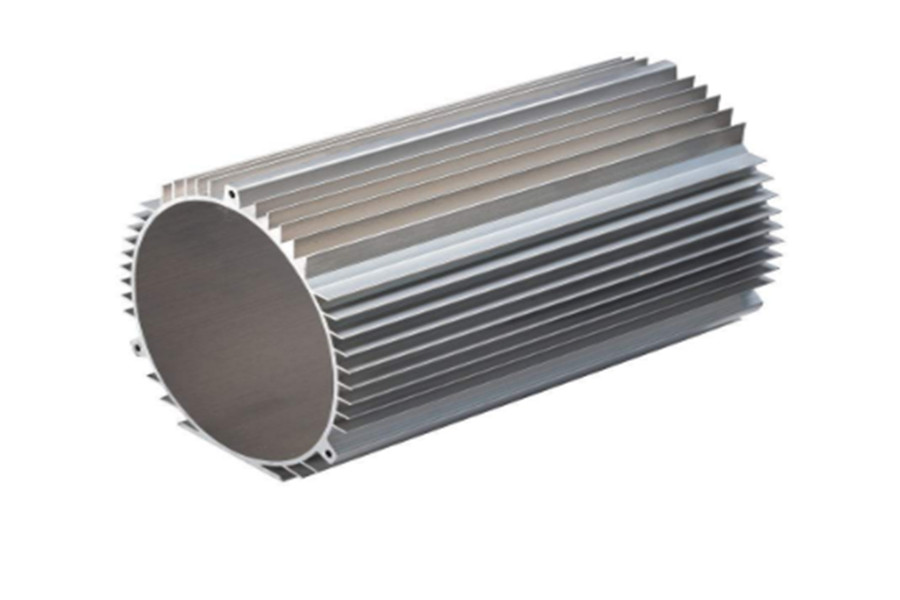
2.2 Shortcomings in the traditional pre-treatment process
1. Long process flow and many procedures.
2. The process is complex, the operating range is narrow, and the process parameters must be strictly controlled.
3. The application range of the process is not wide, and the pre-treatment process of different grades of aluminum alloy cannot be the same, and the pre-treatment process must be adjusted according to the grade of aluminum alloy.
4. Under the premise of strictly controlling the pre-treatment process, the pass rate of electroplating products is very low, the pass rate of ordinary decorative electroplating is 85%~90%, and the pass rate of functional electroplating is 60%~70%.
5. The application life of each process solution is short, and the processing cycle is short.
As the traditional pretreatment of aluminum and aluminum alloys agrees that the above shortcomings generally exist, it must be improved.
3. Improved general-purpose aluminum and aluminum alloy electroplating pretreatment process
Two-in-one degreasing and alkaline etching-washing-pickling-washing-deashing-washing-alkaline activation-dipping-washing-neutral nickel plating-washing-subsequent electroplating.
4. Practice summary
The new process is aimed at the actual defects of the current aluminum alloy electroplating, combined with the special physical and chemical properties of the aluminum alloy itself, and is improved on the basis of the original process. The specific advantages are as follows:
1. The process flow is short, and the purity of the aluminum alloy surface is improved by selectively dissolving other metals in the surface layer of the aluminum alloy, which improves the bonding force of the coating.
2. Early use of alkaline activation instead of acidic activation process to completely remove the residual silicon and silica gel on the surface of the alloy during the pre-treatment process of plating, and effectively improve the bonding force of the coating.
3. After alkaline activation, the zinc is directly dipped without washing, which can avoid the formation of an oxide layer when exposed to the air when the acid is activated and then washed with water and then zinc dipped for the second time.
4. Only one simple dip galvanizing is enough, and the coating bonding force is obviously better than the double dip galvanizing and the complex multiple cyanide dip galvanizing process.
5. The versatility of the process is wide, and it can be used for almost all aluminum alloy electroplating pretreatment.
6. The one-time pass rate of product electroplating is significantly higher than that of traditional technology. If the bonding strength of the coating is evaluated alone, the pass rate of the product is close to 100%.
7. The process operation in actual production is simple and convenient.
8. The actual production of the long-term large-scale gantry automatic production line has proved that the improved new aluminum alloy electroplating pretreatment is very stable.
9. It is convenient for process improvement on the basis of traditional aluminum alloy electroplating process.
10. The use of Haocheng aluminum oxide power supply can quickly increase the filming speed, shorten the filming time, save resources, and achieve the effect of saving costs.
Link to this article: Improvement of pretreatment process for aluminum and aluminum alloy electroplating
Reprint Statement: If there are no special instructions, all articles on this site are original. Please indicate the source for reprinting:https://www.cncmachiningptj.com/,thanks!
 PTJ® provides a full range of Custom Precision cnc machining china services.ISO 9001:2015 &AS-9100 certified. 3, 4 and 5-axis rapid precision CNC machining services including milling, sheet metal to customer specifications,Capable of metal & plastic machined parts with +/-0.005 mm tolerance.Secondary services include CNC and conventional grinding, laser cutting,drilling,die casting,sheet metal and stamping.Providing prototypes, full production runs, technical support and full inspection.Serves the automotive, aerospace, mold&fixture,led lighting,medical,bicycle, and consumer electronics industries. On-time delivery.Tell us a little about your project’s budget and expected delivery time. We will strategize with you to provide the most cost-effective services to help you reach your target,Welcome to Contact us ( sales@pintejin.com ) directly for your new project.
PTJ® provides a full range of Custom Precision cnc machining china services.ISO 9001:2015 &AS-9100 certified. 3, 4 and 5-axis rapid precision CNC machining services including milling, sheet metal to customer specifications,Capable of metal & plastic machined parts with +/-0.005 mm tolerance.Secondary services include CNC and conventional grinding, laser cutting,drilling,die casting,sheet metal and stamping.Providing prototypes, full production runs, technical support and full inspection.Serves the automotive, aerospace, mold&fixture,led lighting,medical,bicycle, and consumer electronics industries. On-time delivery.Tell us a little about your project’s budget and expected delivery time. We will strategize with you to provide the most cost-effective services to help you reach your target,Welcome to Contact us ( sales@pintejin.com ) directly for your new project.
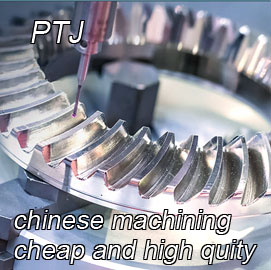
- 5 Axis Machining
- Cnc Milling
- Cnc Turning
- Machining Industries
- Machining Process
- Surface Treatment
- Metal Machining
- Plastic Machining
- Powder Metallurgy Mold
- Die Casting
- Parts Gallery
- Auto Metal Parts
- Machinery Parts
- LED Heatsink
- Building Parts
- Mobile Parts
- Medical Parts
- Electronic Parts
- Tailored Machining
- Bicycle Parts
- Aluminum Machining
- Titanium Machining
- Stainless Steel Machining
- Copper Machining
- Brass Machining
- Super Alloy Machining
- Peek Machining
- UHMW Machining
- Unilate Machining
- PA6 Machining
- PPS Machining
- Teflon Machining
- Inconel Machining
- Tool Steel Machining
- More Material

